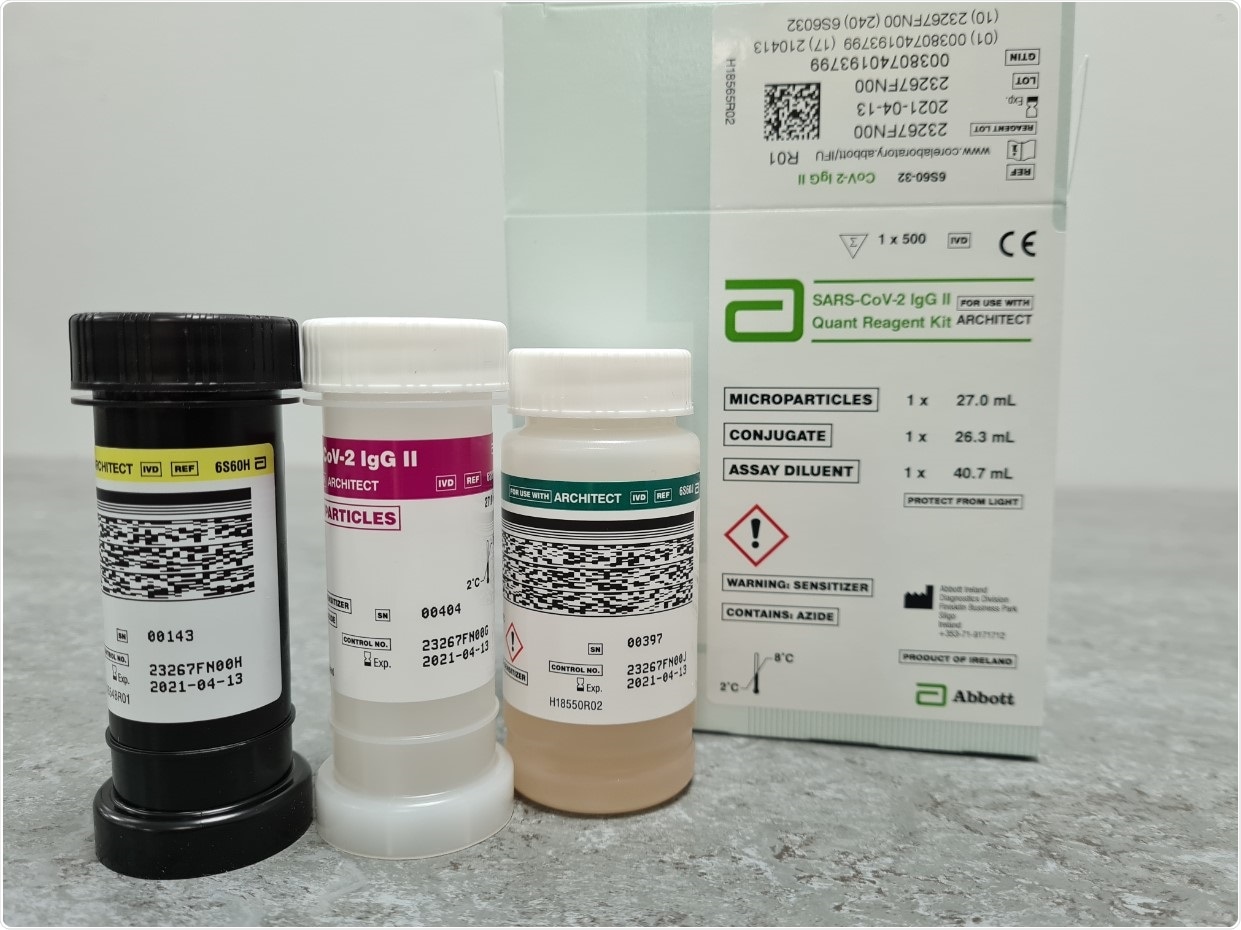Abbott announced today it received CE Mark for its new quantitative SARS-CoV-2 IgG (Immunoglobulin G) lab-based serology test. IgG antibody testing that gives a quantitative result (measuring the amount of antibodies) provides important insights to people as they recover from COVID-19 and help evaluate a person's immune response to a vaccine.

Countries around the world are preparing for the authorization and the distribution of COVID-19 vaccines. As these vaccines become available, healthcare professionals and researchers will need to assess how individuals and communities are responding.
Testing will continue to help both identify those who are infected as well as determine whether people have had a natural or vaccine-induced immune response. Quantitative antibody testing can help provide greater understanding of a person's immune response."
John Hackett, Ph.D., Divisional vice president of Applied Research and Technology for Abbott's diagnostics business
The evolution of serology testing during COVID-19
During the early months of the pandemic, Abbott launched its first COVID-19 IgG antibody blood test, which detects the nucleocapsid protein of the virus. The qualitative test continues to provide a better understanding of people's immune response to the virus, including potential duration of the recovery process. The new quantitative antibody test expands on this knowledge by determining both the presence and level (or titer) of antibodies present in the blood.
Abbott's scientists designed its quantitative assay to detect the spike protein of the virus, which plays an important part in how the virus enters the cells. As the body develops an immune response, antibodies develop and bind to the spike portion of the virus in order to block the protein and ultimately prevent infection.
Several vaccines are designed with the spike protein to trigger that same immune response. Research has also shown a correlation between rising IgG levels that target the spike protein, such as those in Abbott's quantitative test, and rising levels of neutralizing antibodies, or the specific antibodies that block infections. Studies are underway to understand the relationship between the levels of antibodies a person has and potential immunity from the virus.
As we continue to learn more about the virus, antibody tests may help:
- Determine and monitor a person's immune response to vaccines, including research to determine how long a response may last
- Assess whether a person's antibody levels are a result of the body's natural response to fighting the virus, versus a vaccine-induced response
- Evaluate an individual's level of antibodies to help determine eligibility and potency for convalescent plasma donations
The quantitative IgG antibody test is the latest in Abbott's broad portfolio of tests to support the global healthcare community in the fight against COVID-19. Abbott's COVID-19 test portfolio includes molecular, antigen and serology tests. These tests can help healthcare professionals detect the virus at all stages of its life cycle, including tests that are done in the lab as well as rapid tests done at the point of care.
About the SARS-CoV-2 IgG II Quant antibody test
Abbott's quantitative IgG antibody test is designed to detect levels of IgG antibodies that attach to the virus’ spike protein on the virus surface in serum and plasma from individuals who are suspected to have had COVID-19 or in serum and plasma of subjects that may have been infected by SARS-CoV-2.
A study to determine the clinical performance of Abbott's SARS-CoV-2 IgG II Quant test on its Alinity i instrument found it had 99.60% specificity (ability to exclude false positives) and 99.35% sensitivity (ability to exclude false negatives) in patients tested 15 days or more after symptoms began.
The quantitative IgG test will be available on both the Abbott ARCHITECT and Abbott Alinity i platform.